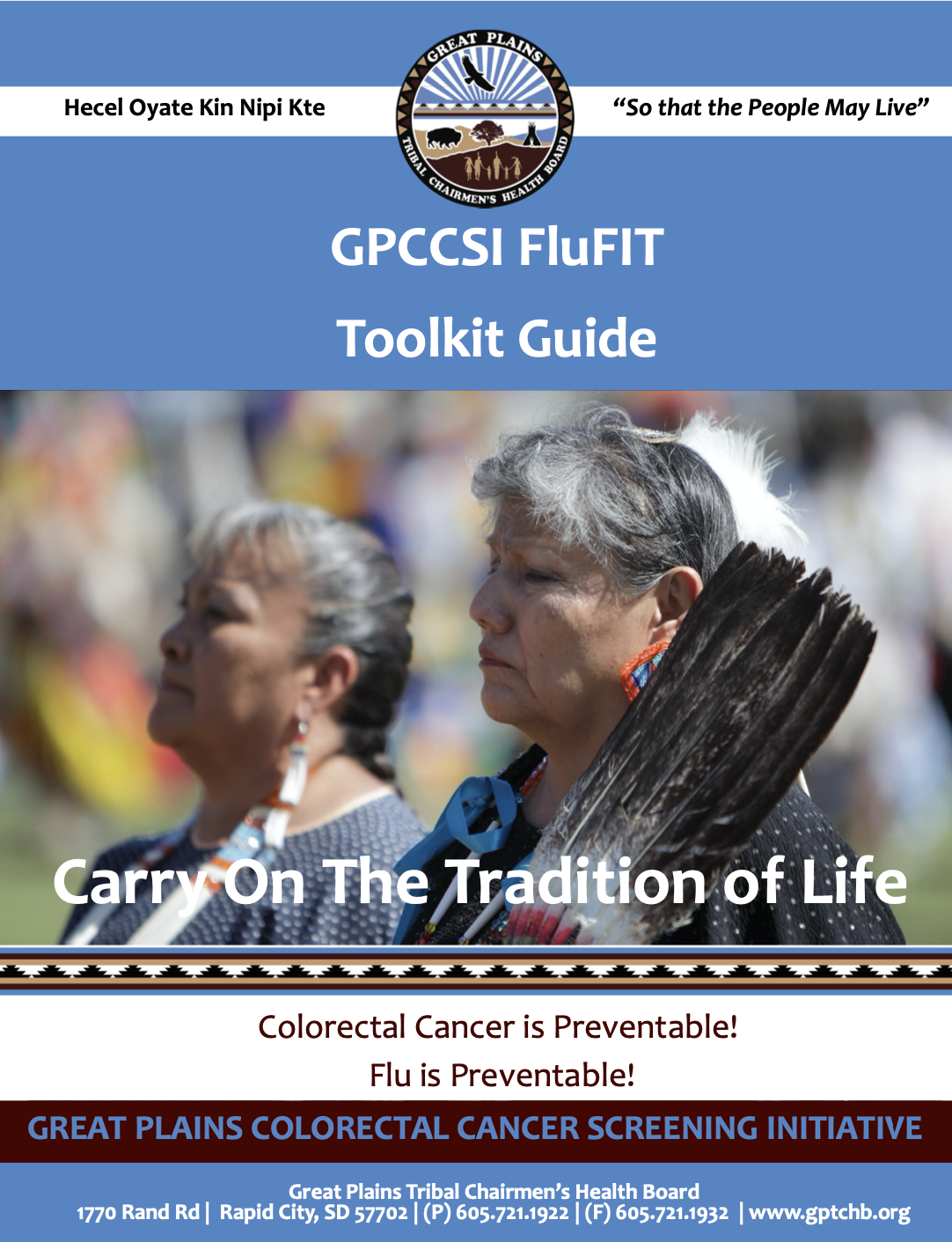
Colorectal Cancer Awareness
Colorectal cancer is the third most commonly diagnosed cancer among Native people, and the second leading cause of cancer death. There are usually no symptoms until it’s too late; regular screenings can detect polyps in the colon early, before they turn into cancer.
End Colon Cancer in Indian Country
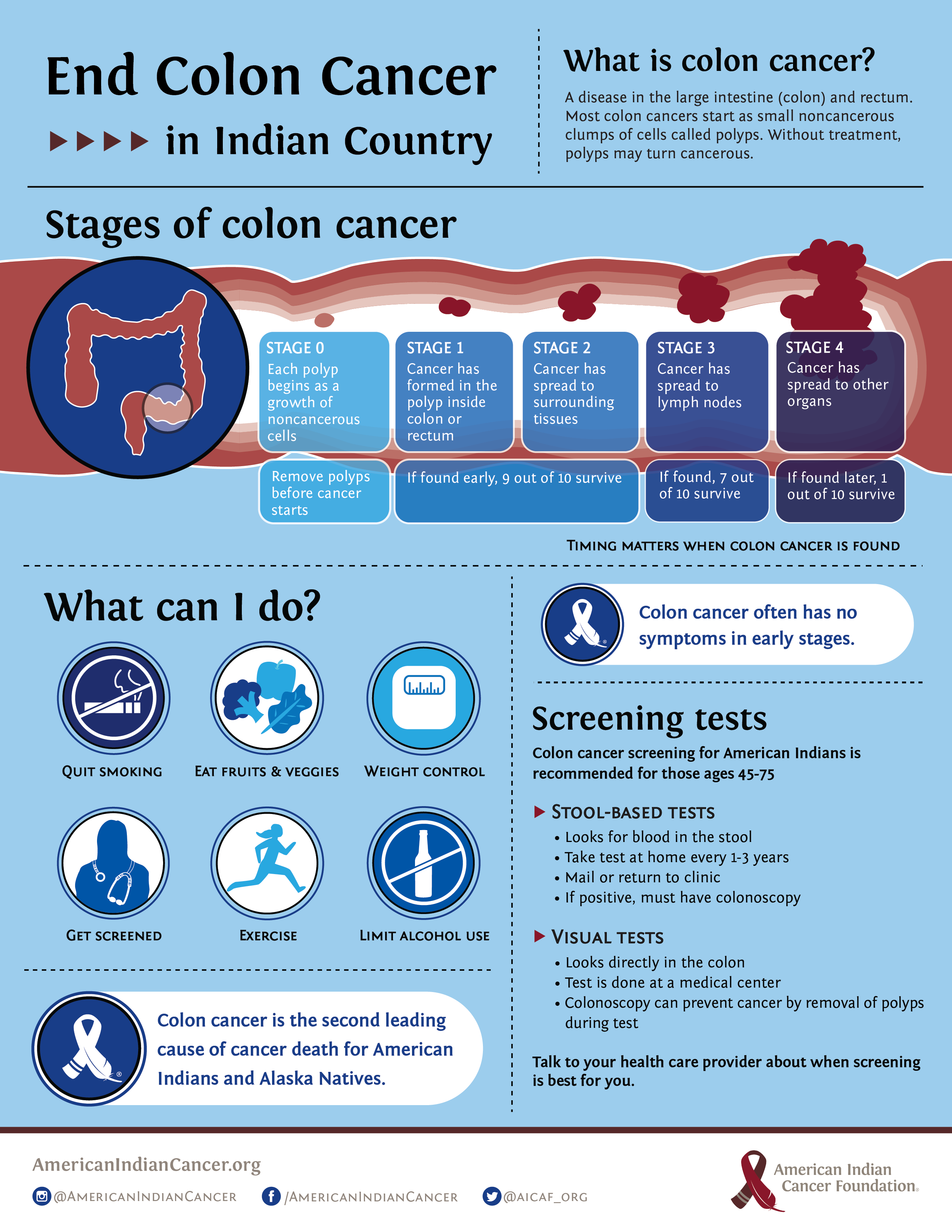
End Colon Cancer in Indian Country
Colon cancer is a disease in the large intestine and rectum. Most cases will begin as small noncancerous clumps of cells called ‘polyps.’ Make an appointment with your health care provider to talk about when screening is best for you. It may help save you life!
Indigenous Food for Your (Gut) Health
FOOD IS MEDICINE. Our ancestors had access to a variety of foods that were important for maintaining gut health. Start adding some of these Indigenous foods into your diet to keep your gut healthy, and help reduce your risk for diseases like colorectal cancer.
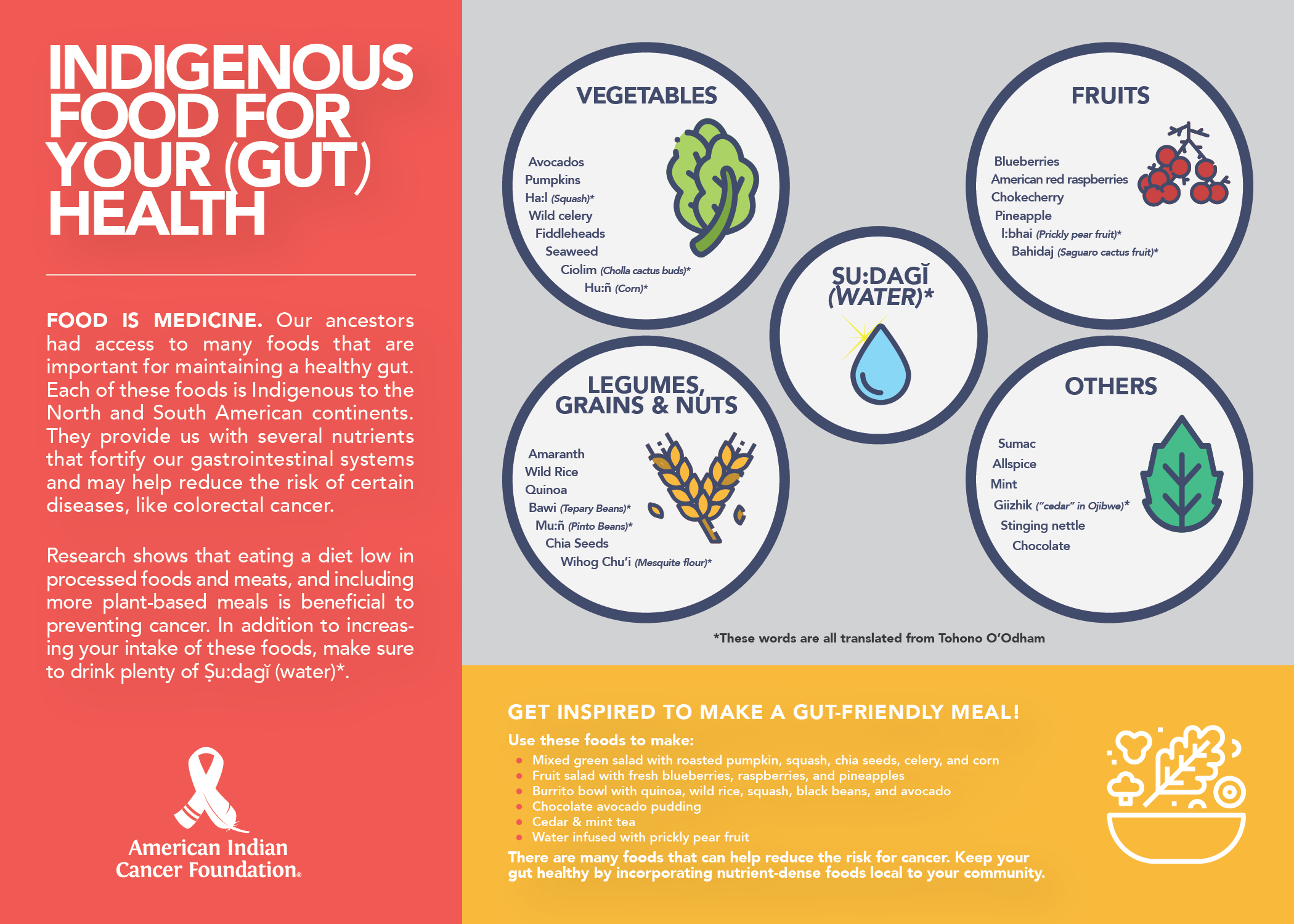
My Colonoscopy Tools
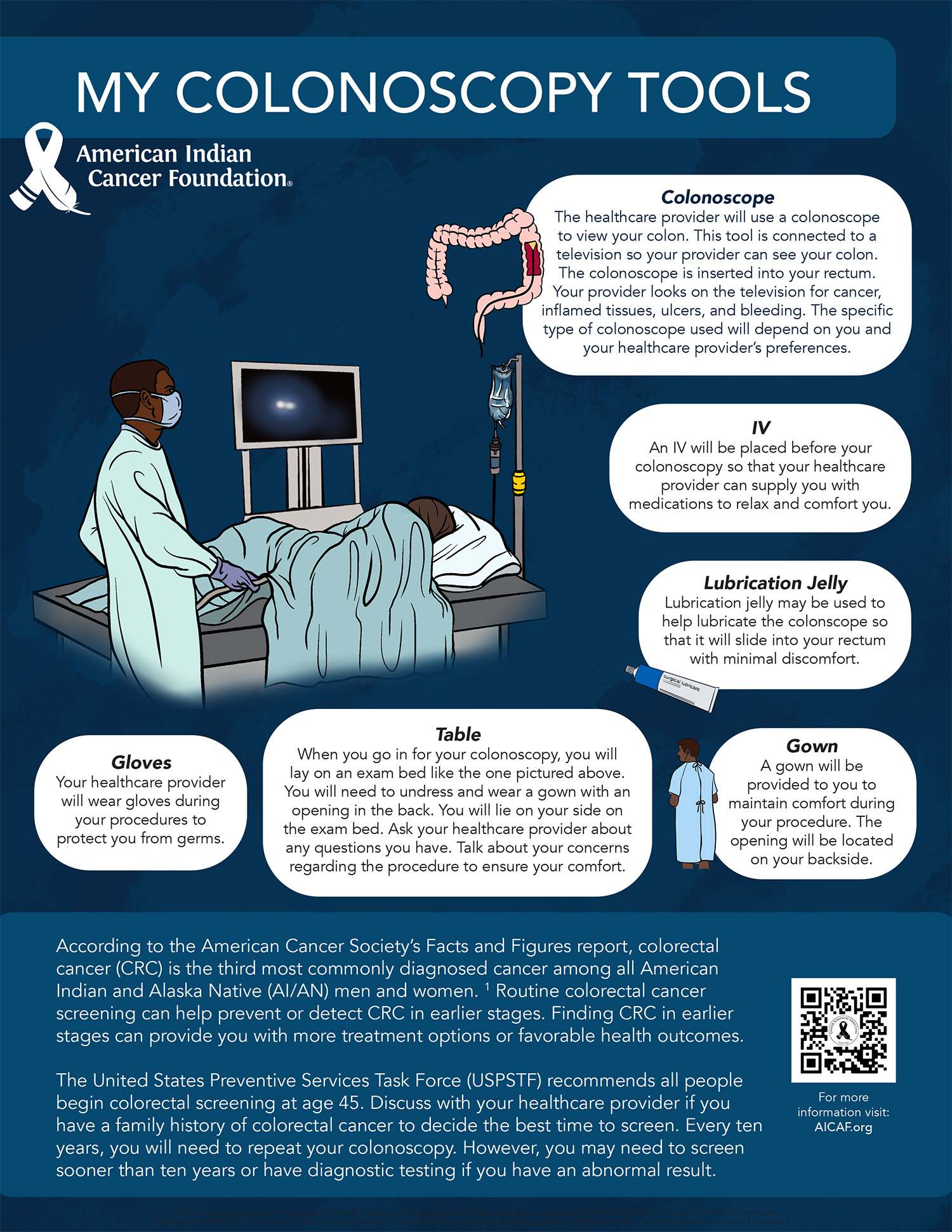
My FIT Test Tools
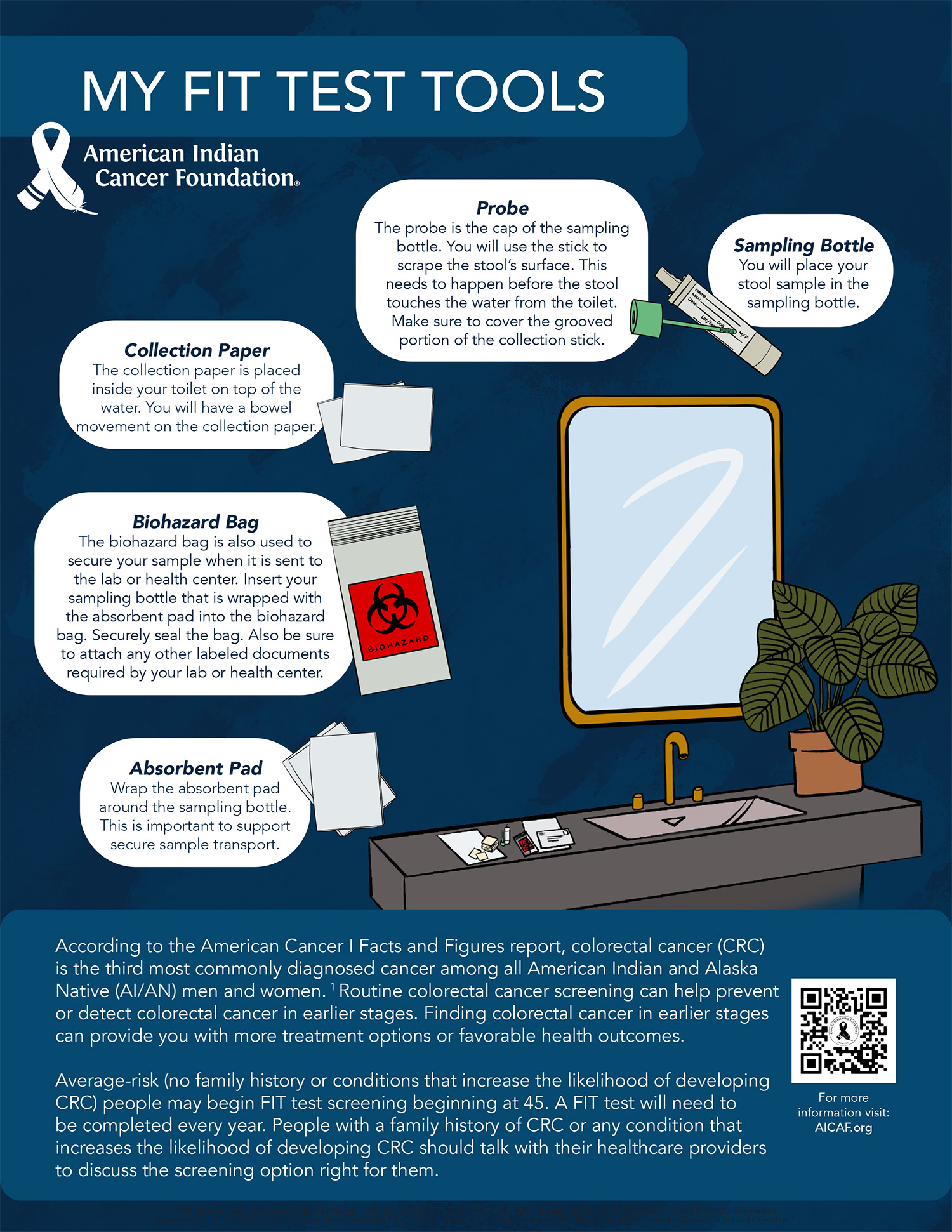
I'm Behind CRC Screening Pledge
Colorectal Cancer (CRC) is the second leading cause of cancer death for Native people. Getting screened saves lives by detecting precancerous growths in the early stages when they are easiest to treat and remove. Most men and women should start screening at age 45, but can have it done earlier if symptoms are present. Help us end colon cancer in Indian Country by taking the pledge to get screened! Once you have taken the pledge, our team will send you the I'm Behind CRC Screening Pledge certificate.
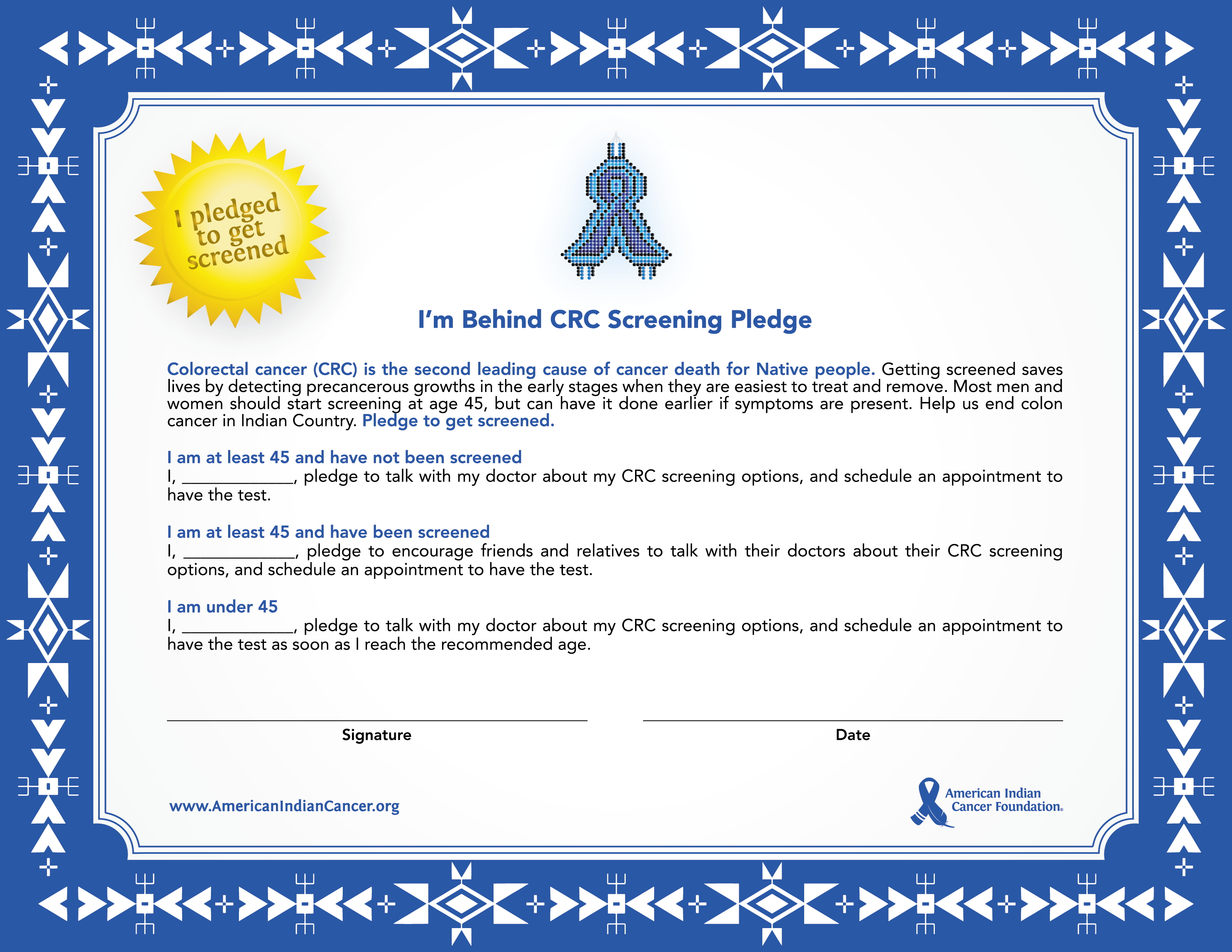
Which Colorectal Cancer Screening is Right for Me?
The three screening tests that most accurately identify colorectal cancer are the colonoscopy, flexible sigmoidoscopy, and the stool test. But remember, the best screening test is the one that gets done! Use this chart to help you determine which option is best for you.
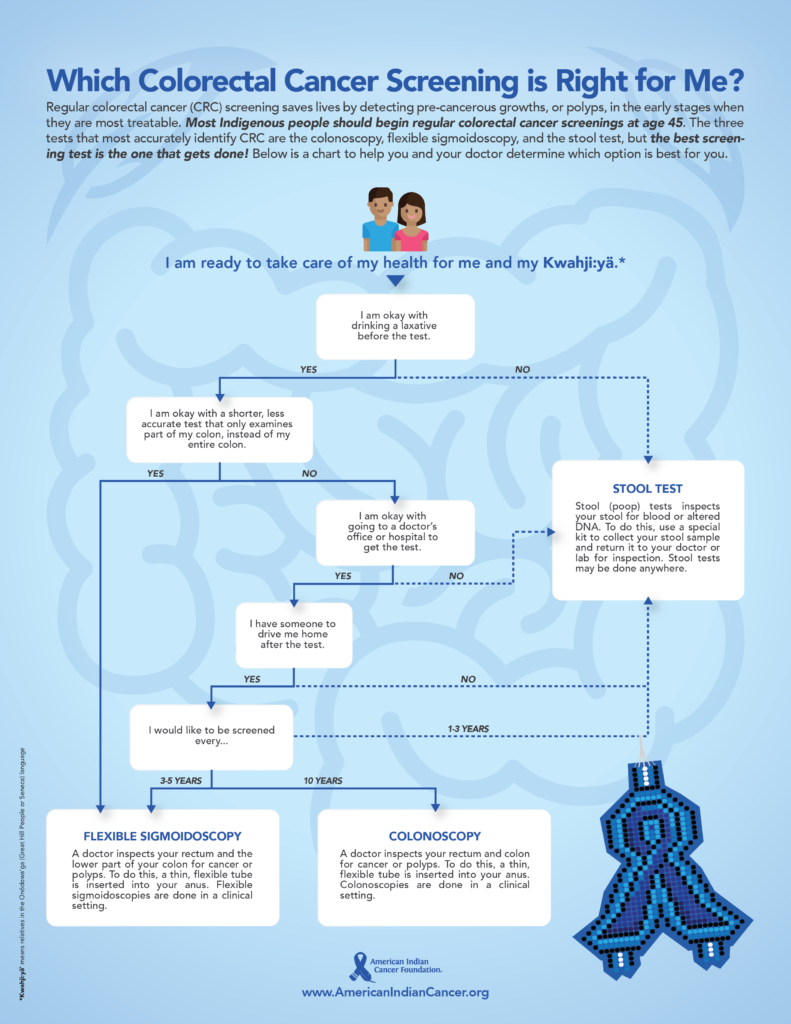
Colorectal Cancer Signs & Symptoms
Indigenous people are often diagnosed with colorectal cancer in its later and more fatal stages when the symptoms become more obvious. Use the "Colorectal Cancer Signs & Symptoms" infographic to learn more about the common CRC signs and symptoms, and understand when you should speak to your doctor about screening.
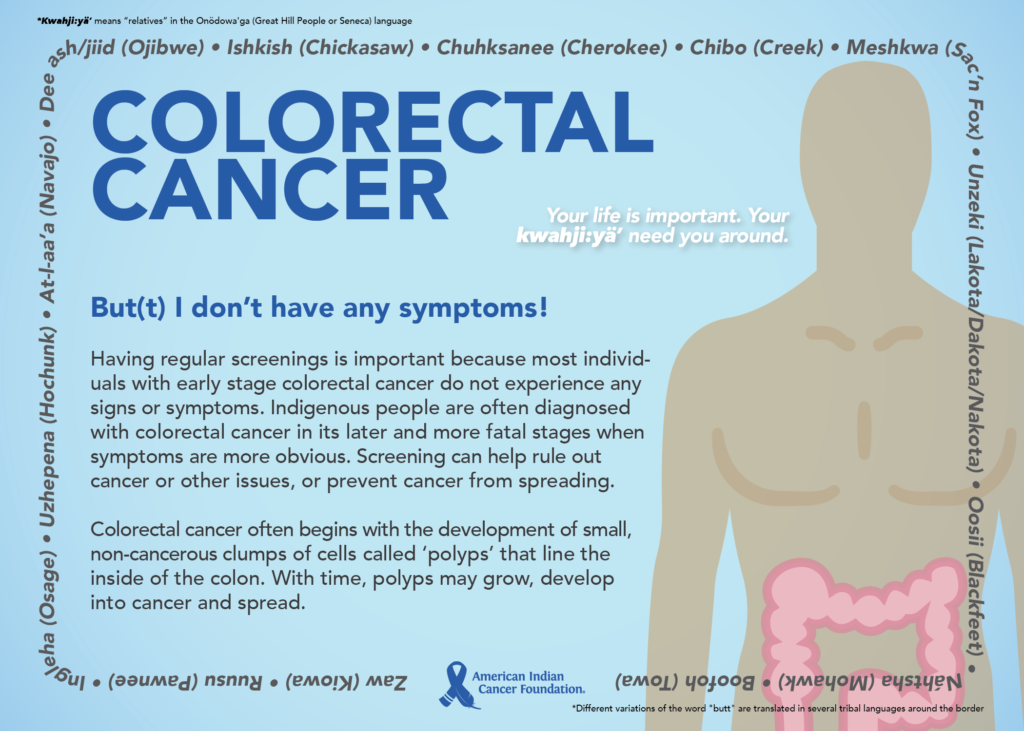
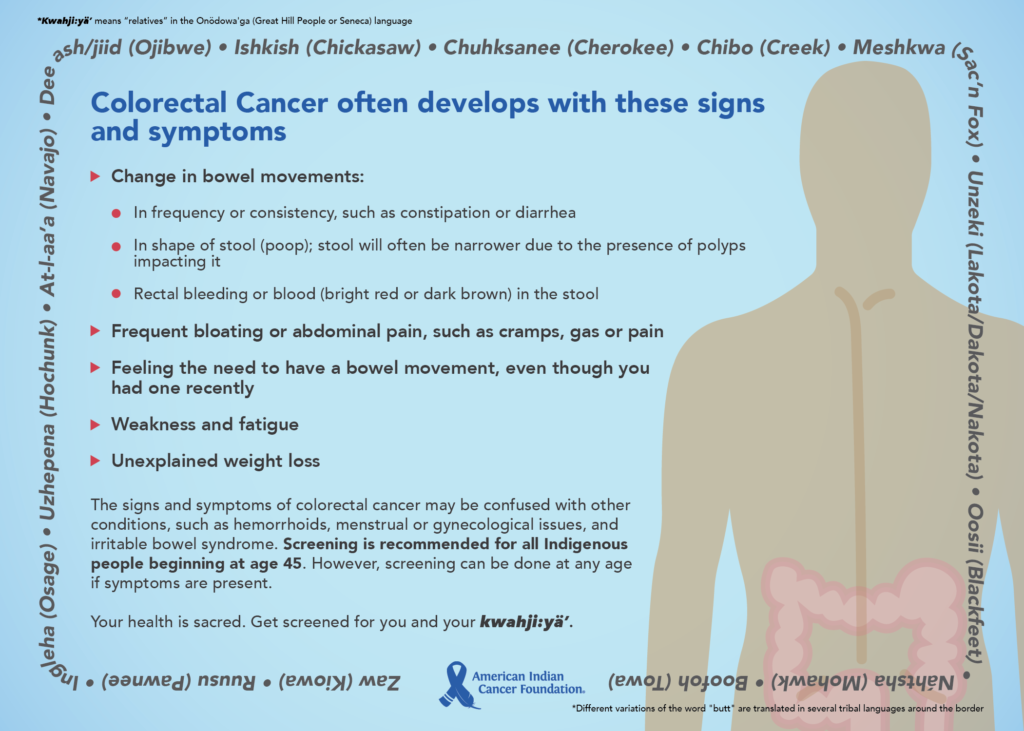
#GetBehindCRCScreening Postcard
Create a #GetBehindCRCScreening Postcard for our relatives in Indian Country! AICAF invites youth of all ages to personalize our card with a message that reminds loved ones to get screened, or that honors a CRC survivor. We'll share these heartfelt creations with clinics and patients in Native communities across the country.
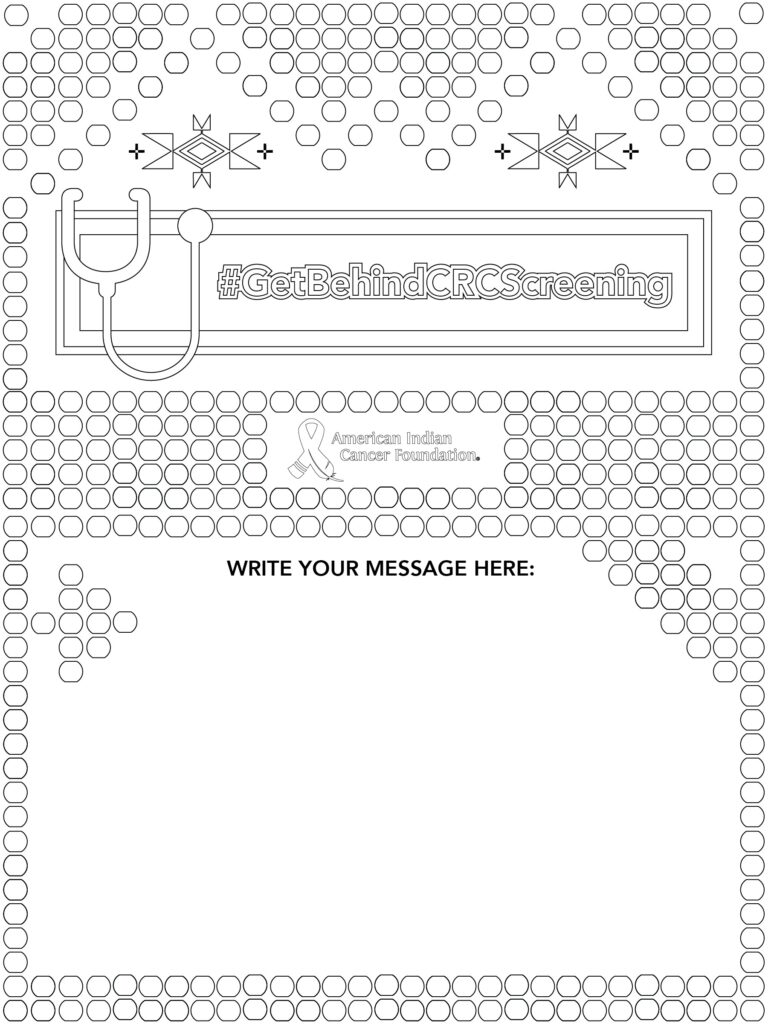
CRC Tools and Booklets
CRC Toolkit for Providers
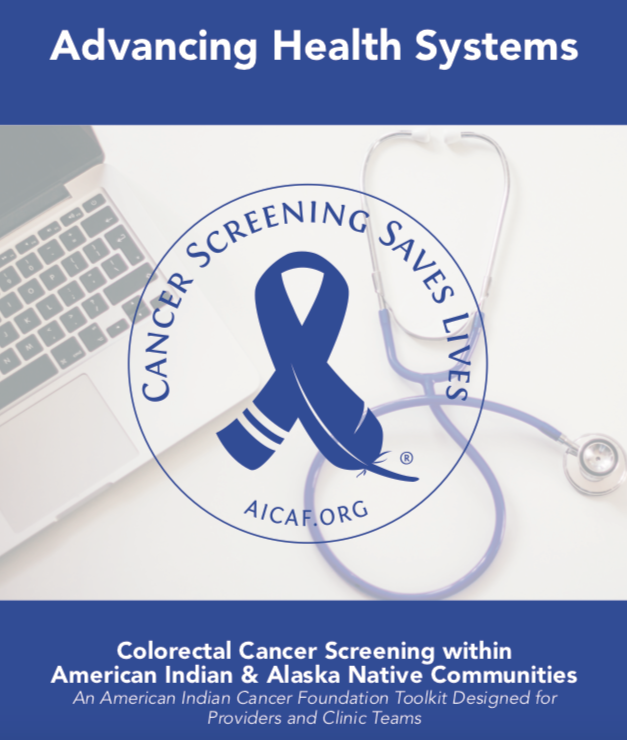
Honor the Gift of Health CRC Booklet
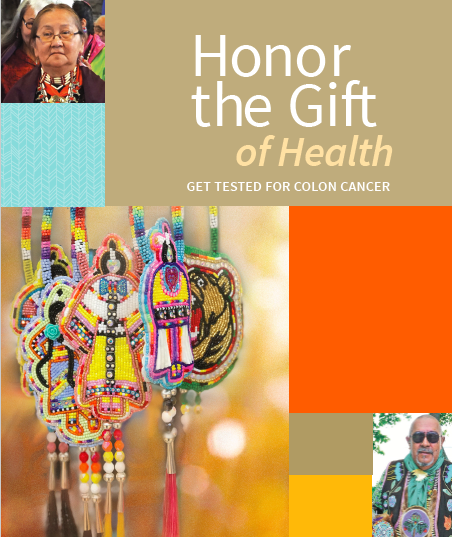
More Screening Resources
Great Plains Colorectal Cancer Screening Initiative FluFIT Toolkit Guide
There is more than one way to get screened. Learn about the options:
Colorectal Cancer Screening Saves Lives (CDC) -- see page 5 for information on screening options
Native People's Wellness: CRC Prevention, Detection and Care -- see pages 6 and 7 for information on screening options

#BlueBeadsDay
Raise awareness of colorectal cancer in Indian Country by celebrating #BlueBeadsDay! Join AICAF throughout March to encourage loved ones to get screened and help spread the word about early detection. If you are interested in partnering with us for a Blue Beads Day event in your community or at your clinic, please contact health@aicaf.org.


